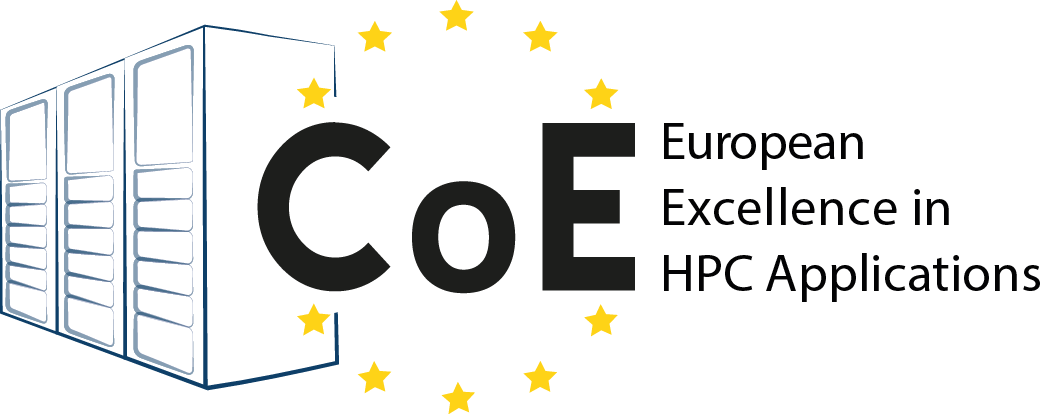Each year, SC provides the leading technical program for professionals and students in the HPC community, as measured by impact, at the highest academic and professional standards.
The Program is designed to share best practices in areas such as: algorithms; applications; architectures and networks; clouds and distributed computing; data analytics, visualization, and storage; machine learning and HPC; performance; programming systems; system software; and state of the practice in large-scale deployment and integration.
The HiPEAC Computing System week will take place in 14-16th October 2020 in Tampere, Finland.
The ICEI/Fenix project is excited to announce the 2nd free-of-charge Fenix Infrastructure Webinar “How to exploit ICEI scalable computing services” to take place on Tuesday 10 December at 15:00 CET. Read all the details below and register at: https://zoom.us/webinar/register/WN_0bm1cWWSS_O_4ihNf6EZ6w
Date and Time: Tuesday 10 December 15:00-16:00 CET
Cost: Free of charge
Speaker: Sadaf Alam, Swiss National Supercomputing Centre (CSCS)
Description: The goal of this webinar is to introduce participants to the Fenix Scalable Computing Services (SCC). It will provide details on the ICEI infrastructure for SCC at the Swiss National Supercomputing Computing Centre (CSCS). A dedicated Q&A time will allow for questions at the end of the webinar. Information on the available resources can be found at: https://fenix-ri.eu/infrastructure/resources/available-resources
Who should attend?
- HPC infrastructure users
- Neuroscientists
- Application and platform developers
- Workflow engineers
Main takeaways
- Usage details of a large-scale hybrid and heterogeneous scalable computing services
- Opportunities for tuning and optimisation for users and platform developers
Agenda
- Overview Piz Daint ecosystem (10 min)
computing, storage & networking
programming environment (compiler, math libraries, MPI, debugging and performance tools)
resource management and scheduling
data transfer and management
HPC and data science tools and frameworks
- Selected examples and how-tos (10 min)
job submission, querying and user level tools
compiling, profiling and debugging
storage orchestration
- Itemised list of projects from the Human Brain Project highlighting usage of Piz Daint in workflows (5 min)
- Questions & Answers (20 min)
The webinar will be recorded and the full recording will be available on the Fenix Webinars page soon after it takes place. Register at: https://zoom.us/webinar/register/WN_0bm1cWWSS_O_4ihNf6EZ6w
On September 9, 2019, Guest Lecturer Rosemary Francis will explain common I/O problems and best practices to implement easy performance wins in the 11th POP Guest Webinar – Implementing I/O Best Practices to Improve System Performance with Ellexus. She will outline I/O profiling for improving application performance as well as I/O monitoring for improving HPC system performance through good application deployment.
Register at: https://register.gotowebinar.com/register/1431504066316502018
The conference will address all aspects of the rapidly burgeoning domain of computational biomedicine, from genome through organ to whole human and population levels, embracing data driven, mechanistic modelling and simulation, machine learning and combinations thereof. We welcome contributions from academic, clinical and industrial participants alike.
European Research and Innovation Days include the following events:
The Policy Conference brings together high-level policy-makers, leaders from industry, finance, academia and the entrepreneurial community to debate and shape the future research and innovation landscape. It covers vital areas of science, engineering, medicine, and wider social and environmental concerns.
The Innovative Europe Hub is a unique meeting and matchmaking space for innovators, investors, entrepreneurs and the whole range of services, businesses, civil society organisations, agencies and intermediaries that make European science technology so dynamic.
Free and open to everybody, ‘Science is Wonderful!’ brings the world of science to the public. Fighting cancer, slowing down global warming, preventing hunger and drought, facilitating human life in space – it’s all part of the variety of activities schools, families and young people can discover at the event.
MAX CoE participates in the Graphene Week 2019 with the following workshop and session:
- Graphene Flagship – MaX joint workshop on “High performance computing for 2D materials research” Parallel Session on Tuesday, 24 September 2019 (15.30-18.00) + Poster Session (18.00-20.00)
Chairs: Elisa Molinari – director of MaX Center, Vladimir Falko – Director of NGI - Policy session: “European HPC initiatives and 2D materials research: collaborating and funding opportunities” on Tuesday, 24 September 2019 (14:30-15:30)
The aim of the school is to introduce students, postdocs, and other researchers to materials and molecular modelling with Quantum ESPRESSO. The school will cover basic concepts as well as recent advances and developments, with emphasis on density-functional-theory based methods and high-performance computing.
The school will follow a two-decade-long tradition of Quantum ESPRESSO training courses that have been held all over the world and is part of an ongoing effort of the MaX CoE to widen the scope of its action to European countries outside the consortium.
Machine Learning is recognised as a potentially disruptive technology, which may have a large positive impact on both the computational and data management activities associated with Earth System Models.
It is organized by ECMWF and the University of Oxford and co-funded by the ESiWACE2 project.
Researchers interested in solving hyperbolic PDE systems using high order numerical schemes (in particular discontinuous Galerkin) are cordially invited to the 2nd ExaHyPE User Workshop.
ExaHyPE is an open source simulation engine to solve systems of hyperbolic equation systems. Users can try out the engine while some developers are around, i.e. they start the week with a problem given as PDE in mind and go home with a working first prototype built on top of ExaHyPE.
A limited number of travel grants to European partners can be provided.
Registration form: https://exahype-workshop.eventbrite.co.uk/
